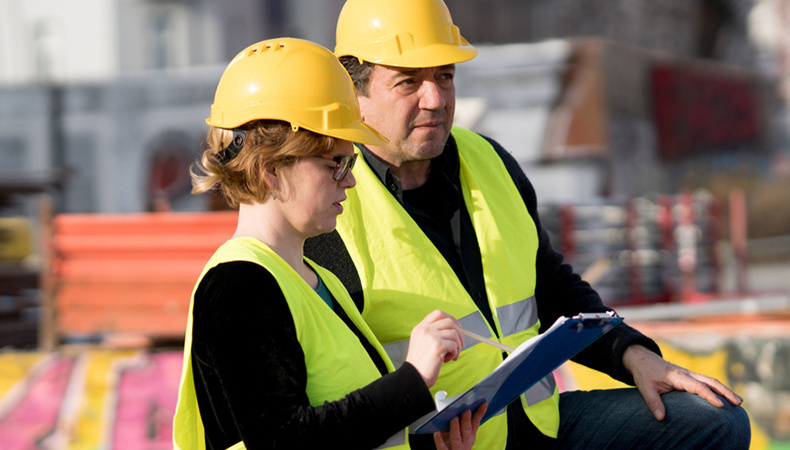How construction firm BAM Nuttall is addressing women’s health issues
Yet, we have come a long way in recent years in our understanding, not only of women’s health, but also of the broader effects both long and shorter term conditions can have on organisations and their workforces.

Ruth Pott, head of workplace wellbeing UK & IRL for BAM UK, firmly believes in the value of raising awareness about health issues to improve people’s understanding, increase empathy and inclusion, and reduce safety risks within the workplace.
To that end, the organisation ran a women’s health week to discuss a range of conditions that can affect women, from menopause to female cancers, and encouraged all staff to participate.
The week mainly consisted of a series of webinars, each introduced by a member of the senior leadership team, a factor that was important to Pott.
“It sends such an important message to have your leadership involved. Not only do our leaders and our chief executive do the introduction, but they actually stay for the whole webinar, they don't dip in and out. And they add their own personal comments and experiences,” said Pott.
The women’s health week programme
The week covered a broad range of topics focusing on different issues to help raise awareness and knowledge, as well as offer guidance and signposting to further information.
The main issues covered were menopause, infertility, female cancers, osteoporosis and bone health and endometriosis. Most of these can be described as chronic health conditions and highlight the need for organisations to fully understand how to best support women in the workplace.
The outcomes of the sessions provided insight into the challenges women face when managing these conditions. For instance, the feedback on menopause suggested that many women “struggled through lack of information, lack of their own knowledge, and being treated unsympathetically by GPs,” said Pott.
As a result, the organisation will introduce a formal menopause policy and more clinical support for women and men in the business.
Another key condition covered during the week was endometriosis, which a colleagued requested.
Endometriosis is a long-term condition where tissue similar to the lining of the womb grows in other places, such as the ovaries and fallopian tubes. It can pause pain in the lower abdomen or back, severe period pain and pain during or after sex.
The session included a recording of three women from within BAM Nuttall talking about their experiences of the condition and the impact it has on their lives. “It was a real eye opener … it's difficult sometimes to understand the impact it can have, it's incredibly painful. And it's a big cause of infertility,” said Pott.
Getting across key messages
Of course not everyone is able to attend a webinar, particularly those who are on a construction site and unable to access a computer. And so, for all of their webinars, Bam Nuttall send out toolbox talks – a short presentation on a single aspect of health and safety.
“The toolbox talk is sent to all of our sites and we encourage all the sites to deliver them as a toolbox talk, or as part of a safety briefing,” says Pott. “So we try and encourage everybody in the business to participate as much as we can because they're all really important messages.”
She added that they also try to get across the point that even if someone or their family are not affected by a particular condition, they should still go learn about it. “Somebody in your professional life or your personal life, if not now, then sometime in the future might be affected, and then at least you can talk from a place of a little bit of knowledge and help to support and signpost as appropriate.”
About 16-17% of the business’s employees are women. So raising awareness is a key driver behind the women’s health week, as more often than not the men in the business have women in their lives who are experiencing these health conditions.
“For example, menopause can lead to relationship breakdown at worst, but at best it can make relationships difficult,” said Pott. “If they've got that going on, and they don't really understand it, and those guys are coming into work with worries, anxieties and distractions, many of them in safety critical roles, it's not great for safety, it’s incompatible.
“We're doing these things because they are the right things to do. But equally, there is a compelling business case to raise awareness on these issues,” said Pott.
The author is Dawn Lewis, content editor at REBA






